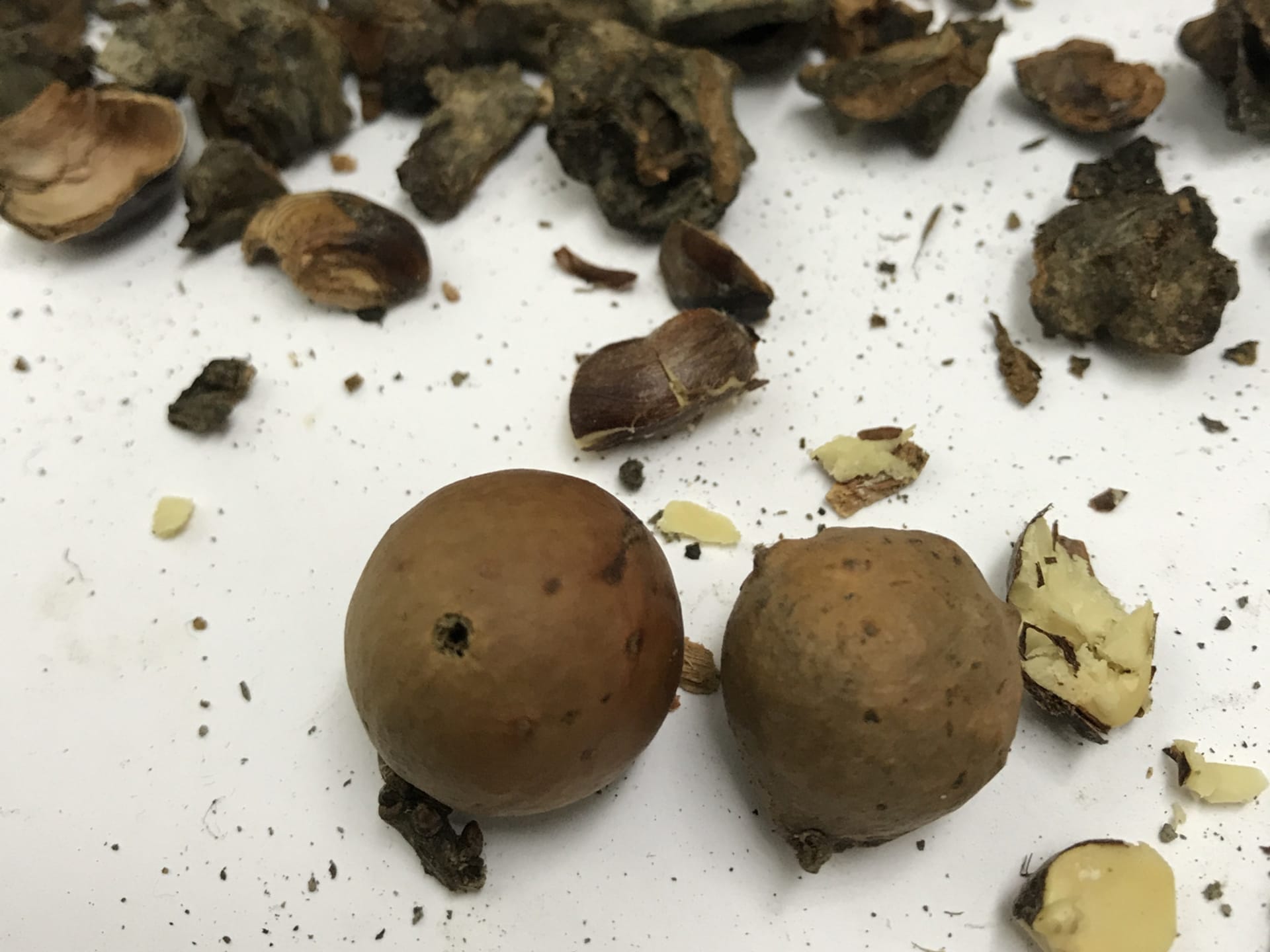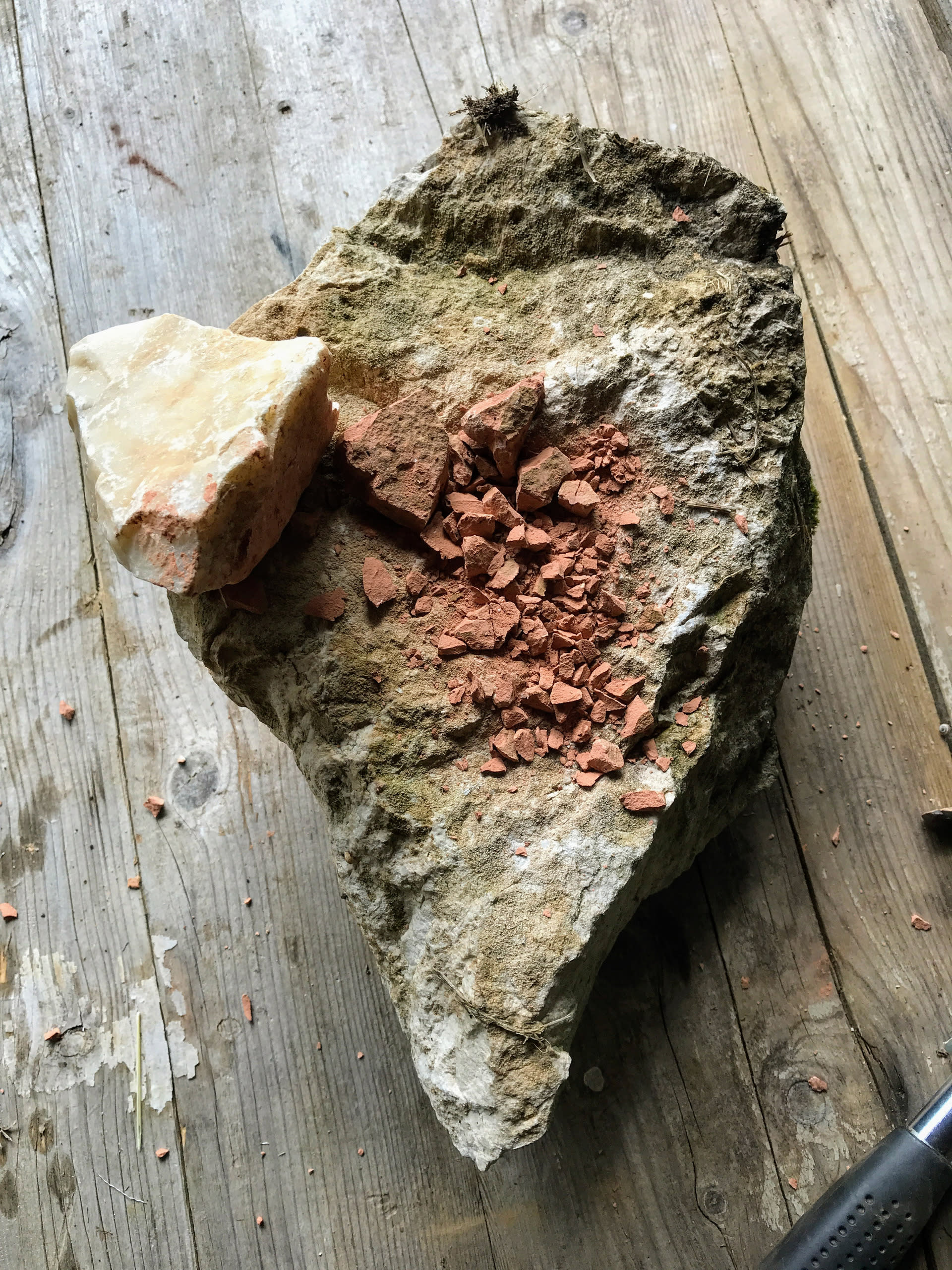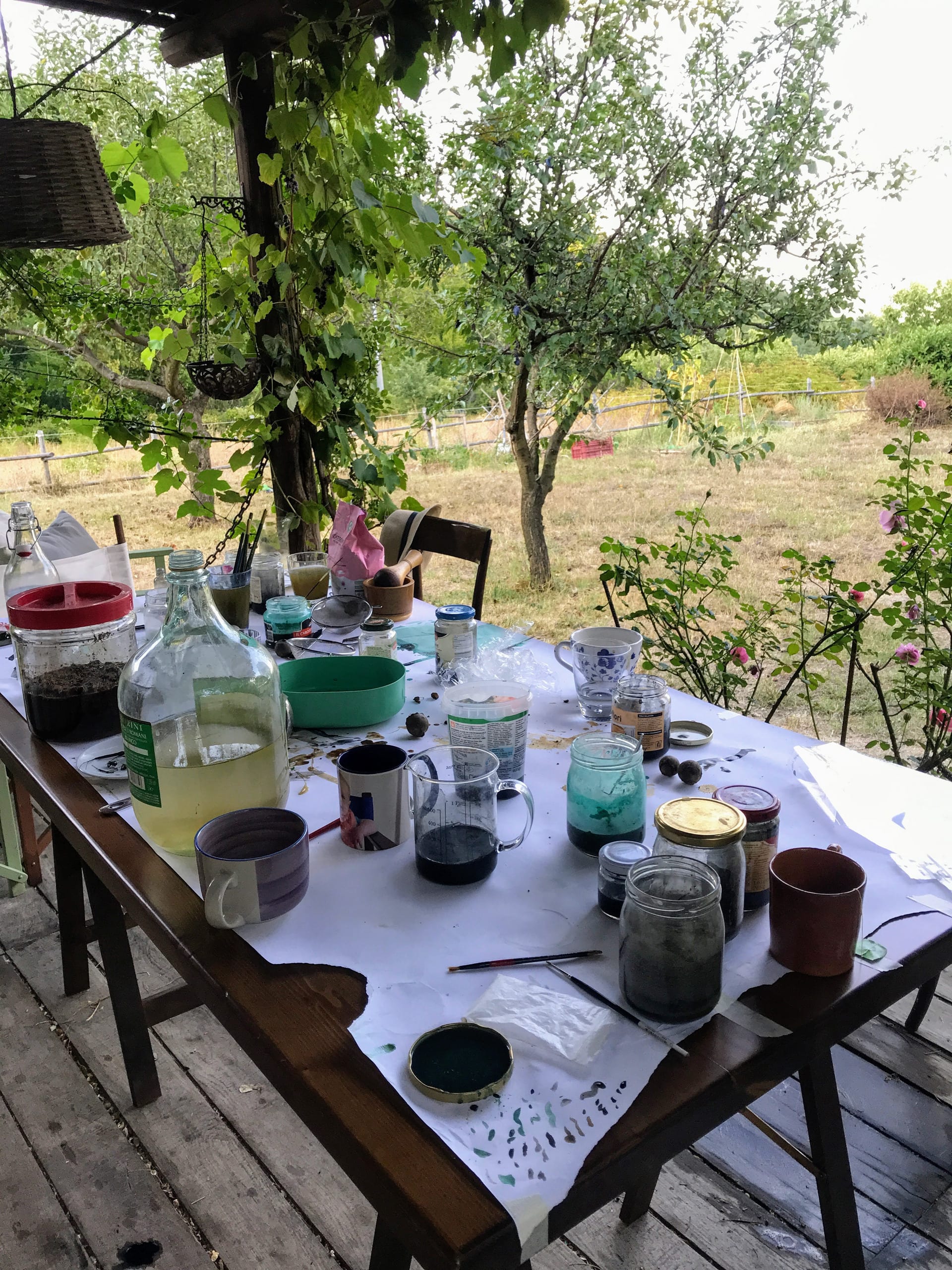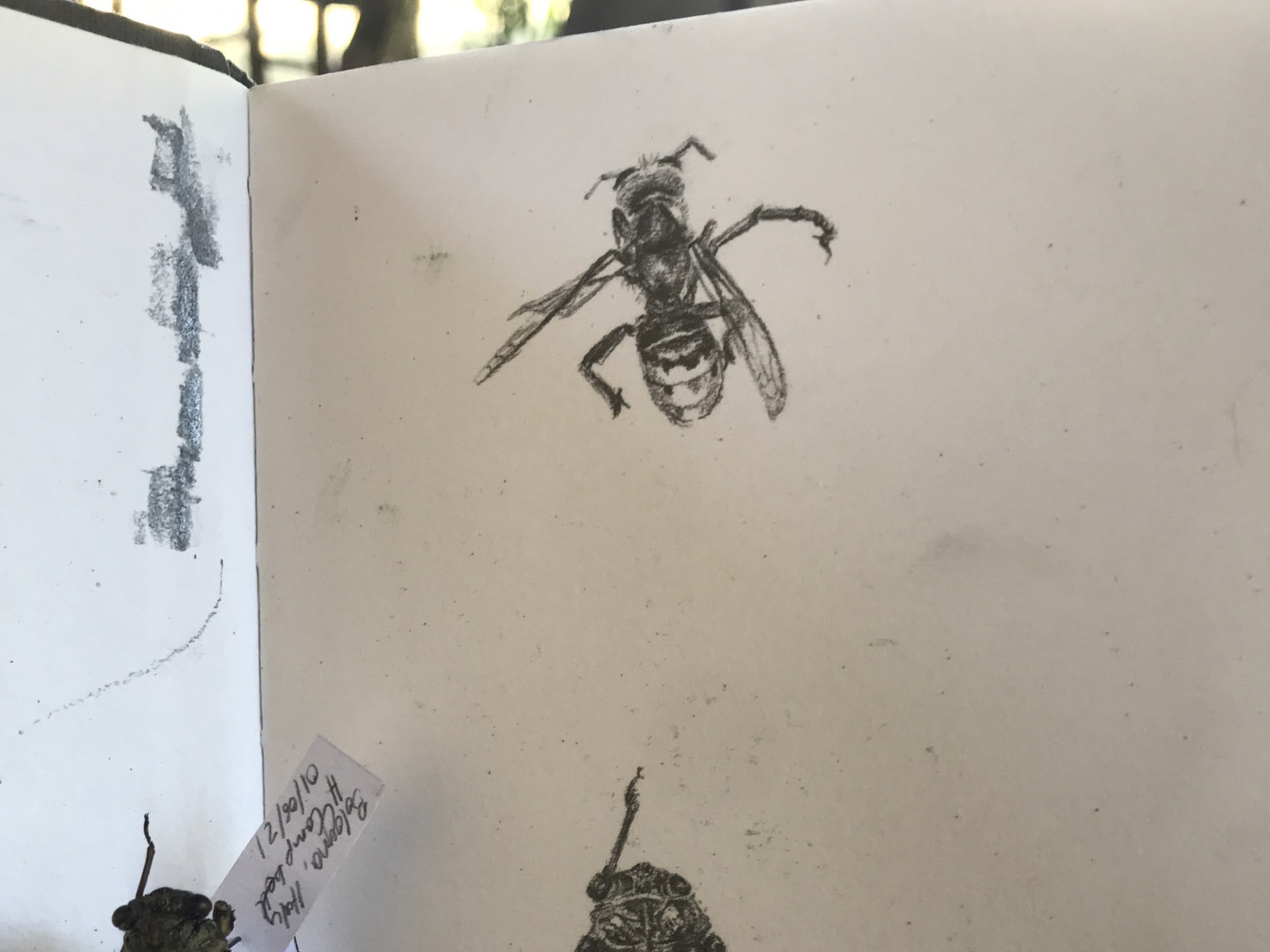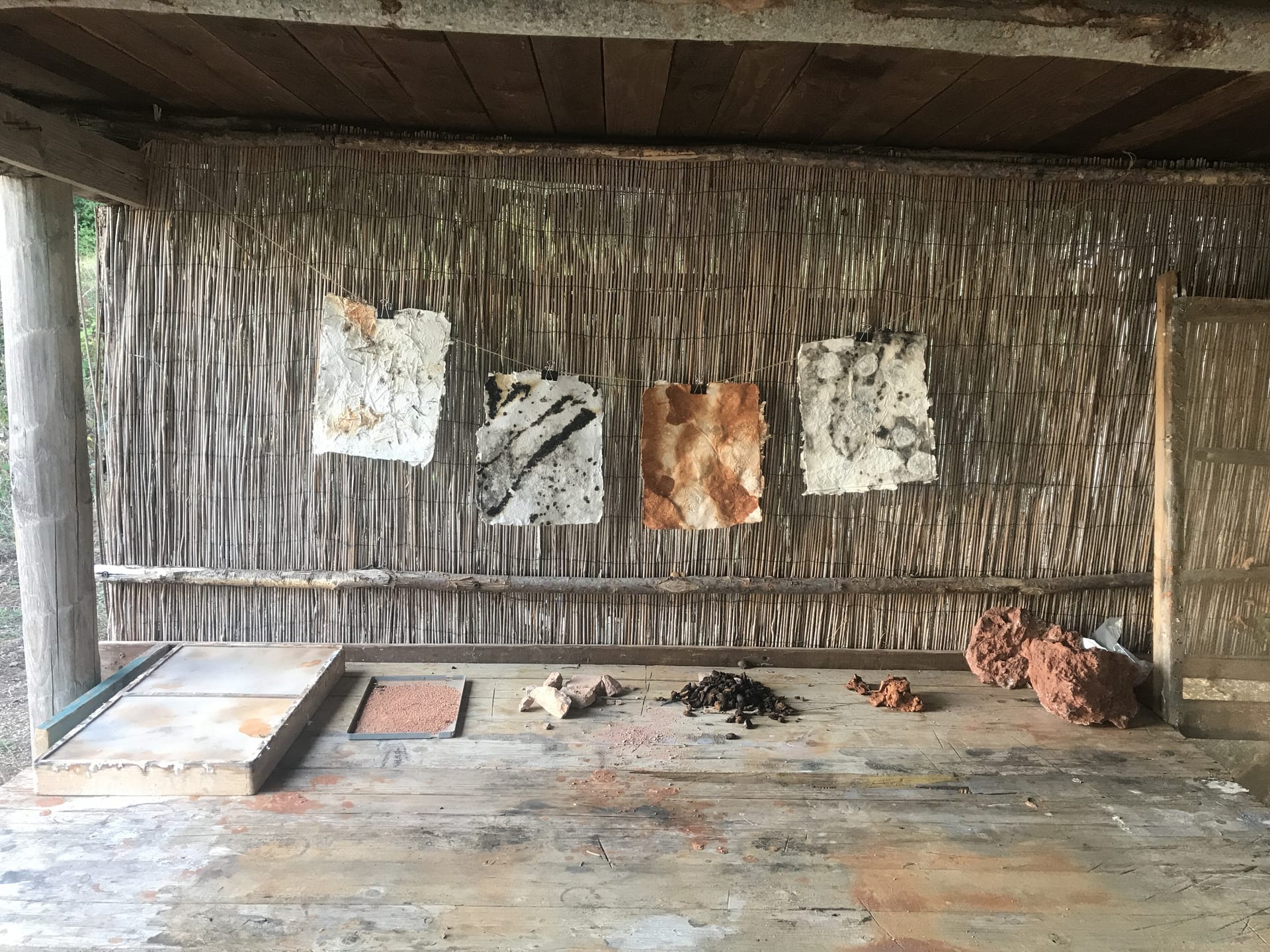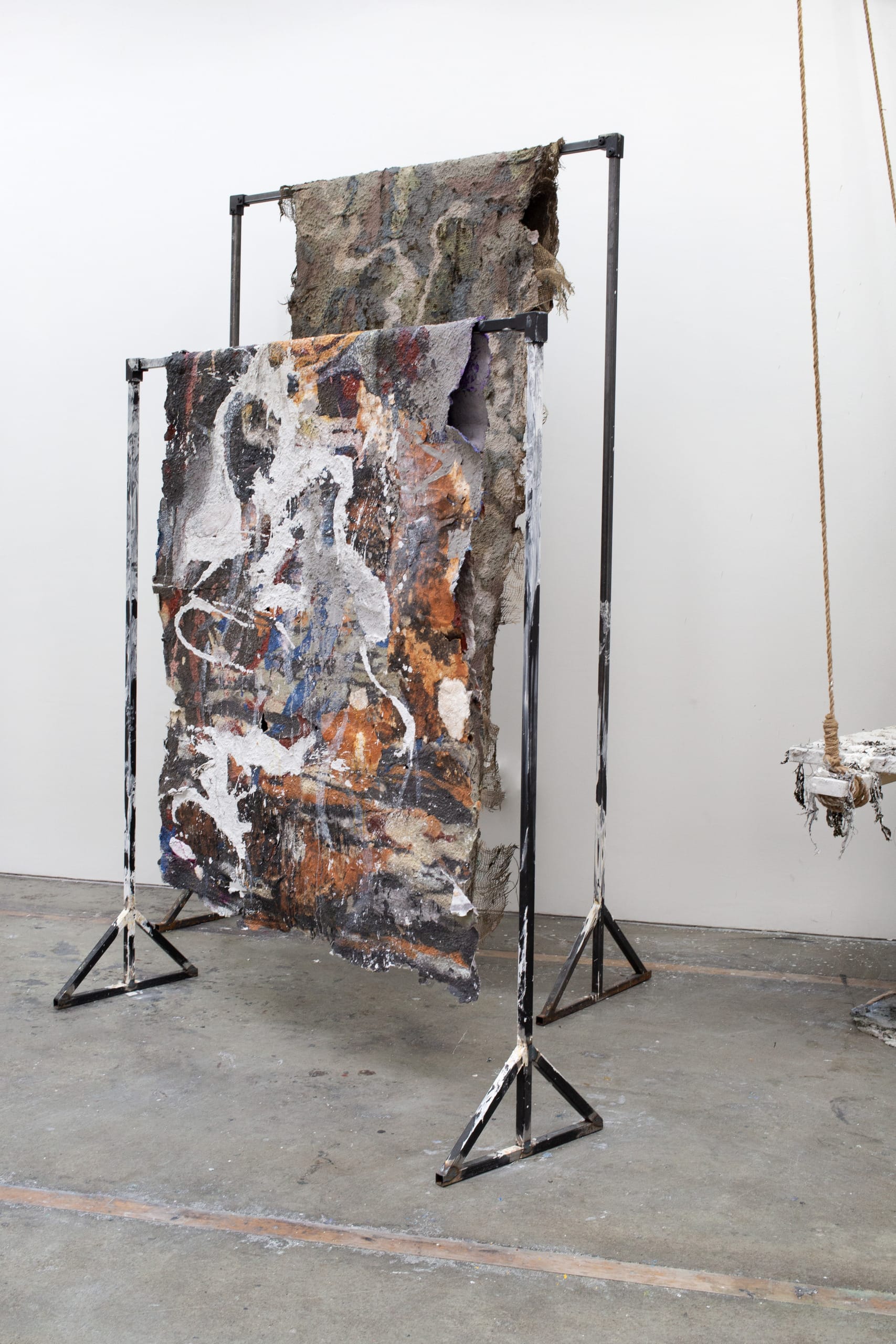Cas Campbell (b. 1995 New Zealand) is a multi-disciplinary artist whose practice explores links between ecology and experiences of queerness, neurodivergence and motherhood. Prior to studying at the RCA, Campbell received a BA in painting from the University of Brighton. Their work has been exhibited in the UK and Europe, shortlisted for the Chaiya Arts Awards and the VOA Awards and is included in several public and private collections.
Cas Campbell


At night, I imagine sinking into the ocean, asking the seaweed, do you remember the primordial ooze? When our grandmothers floated together in the cradle of a new world? Remember how yours reached skywards, becoming photosynthesizers, while mine sank to the depths like microcosmic cannibals? I don’t remember, but I wish I could.
Our bodies contain four billion years of evolutionary stumbles and side-steps. We grow from cell clusters to bloody infants and rot away after our brief stint in the sun. Flashes of this primordial self emerge in our rawest moments. Birthing my son, I was gutted, sliced apart, and emptied, and I cradled him with deep, evolutionary satisfaction at successfully reproducing myself. Burying loved ones, we understand our cells will mingle again soon. We are creatures of this universe, as rich in iron and carbon as the core of a billion exploding stars. We do not forget what we are.
But today, beneath city lights and unabating noise, we can experience misalignment. Humans formulate tilted systems and unpredictable laws of belonging and not-belonging, rising and falling through the millennia, with words to match.
Otherness. Difference. Unnaturalness. Queerness. Divergence.
In the frigid deep ocean lie those who transcend our concepts of natural - our ancient, primordial ancestors still evolving under immense pressure. I am jealous of my grandmothers, who never left the depths. Like them, I wish I could sink and be hidden.
But surface creatures must develop different adaptive strategies to survive. A cuttlefish, when touched, will transform its colours. A queer person may do the same. An autistic person may study others colours, constructing methods to adopt them. I follow these tanged echoes of the othered self in the natural world. Touching dirt, immersed in raw matter, creating my own camouflage, I am grateful to see ourselves as oddly-evolved creatures from the ooze. To be whole and natural, aligned with the universe if not with the world. The seaweed remembers, and I remember, and this is enough.
"There is grandeur in this view of life, with its several powers, having been originally breathed into a few forms or into one; and that, whilst this planet has gone cycling on according to the fixed law of gravity, from so simple a beginning endless forms most beautiful and most wonderful have been, and are being, evolved."
Charles Darwin, The Origin of Species




